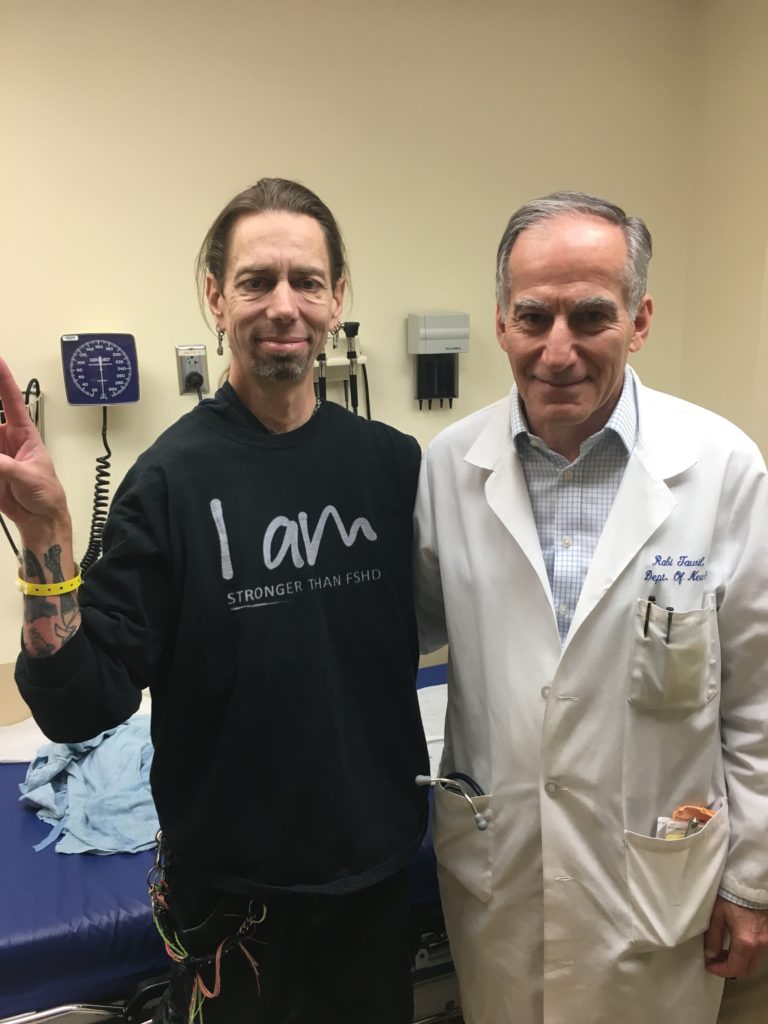
To crack the code of FSHD, patients are absolutely essential
All of the breakthroughs—the discovery of the genetic causes, understanding why some patients vary so greatly in the severity of their symptoms, teasing out the biochemical pathways that could point to future treatments—were made because patients stepped up to the plate.
Too often, we hear patients say they’ll volunteer when there’s a treatment. But we will never get to a treatment unless patients participate in fundamental research now. FSHD is uniquely human, so no laboratory mouse can ever fully model the disease. The genetic “package” that causes FSHD is found only in people. We owe an enormous debt to the patients who give DNA samples. Who submit to long interviews and exhausting physical tests. Allow a surgeon to cut out a small muscle sample. Who fight claustrophobia to lie in the narrow bore of an MRI machine.
Equally important are patients’ family members, both affected and unaffected, who provide the best experimental controls because of their shared genetic and environmental backgrounds. A parent or sibling who has very mild symptoms may hold the key to understanding the factors that protect against the full-blown development of FSHD symptoms in a more severely affected family member.
We are more hopeful today than ever before that a treatment is within sight. We cannot guarantee when that treatment will arrive, but here’s one thing we guarantee: If you volunteer for research, your participation will without question help move us a step closer to that day.
Scientific Overview of FSHD
Read the latest on wikipedia
Glossary of Scientific Terms
Clinical trial readiness study calls for volunteers
by Jim Albert, Eldersburg, MD The FSHD Clinical Trial Research Network (CTRN) is currently recruiting up to 160 FSHD patients across the seven CTRN sites to participate in a study called… Read More »
A new tool for measuring disease burden in FSH muscular dystrophy
by Amanda Hill, Denver, Colorado FSHD clinical researchers recently published what may soon become a standard battery of assessments for use in clinical trials, an exciting and essential milestone for… Read More »
Acceleron Receives FDA Fast Track Designation for its FSHD drug
The Massachusetts-based biotech, Acceleron Pharma, issued a press release this morning with some encouraging news for FSH muscular dystrophy patients about its experimental drug, ACE-083 (see related story). Here is… Read More »
ACE-083 Phase 2 trial results presented at AAN conference
Preliminary results from the ongoing phase 2 clinical trial of ACE-083 in FSHD patients were presented today at the American Academy of Neurology 70th Annual Meeting in Los Angeles, California.The… Read More »






